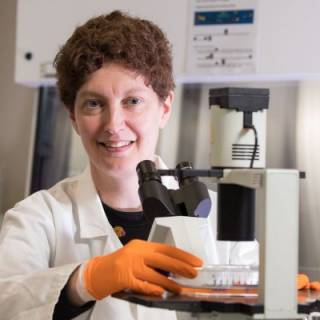Research Aim
The aim of our work is to develop T-cell based immunotherapy approaches for childhood cancer. Our immune system has the unique capacity to discriminate infected or abnormal cells from those that are healthy. T-cells in particular are designed to rapidly register abnormal cells, home to this site and elicit an effective and persistent immune response. As tumour cells are often less distinguishable from healthy tissue as compared to infected cells and tumour cells often employ disguising mechanisms to evade an immune response, a naturally occurring T-cell response is usually not sufficient to keep a tumour at bay. However, several strategies have now been developed to harness T-cells with the specificity they require to recognize and subsequently destroy tumour cells.
T-cell immunotherapy approaches have shown remarkable results in treating leukaemias and lymphomas that were unresponsive to conventional treatment with chemotherapy. Unifying aim of our research projects it to develop these T-cell based immunotherapy approaches for childhood solid cancers including neuroblastoma and high-grade brain tumours.
- Background
Each year 1600 children in the UK are diagnosed with cancer. Over 80% of these children will be cured and become long term survivors. Whereas the majority of children with diagnosed with cancer have a good outcome with current treatment approaches, some types of childhood cancer remain challenging to treat. One such example is neuroblastoma, a tumour arising from the sympathetic nervous system. Half of the children who are diagnosed with neuroblastoma have an aggressive form of this childhood cancer. Currently these children receive a highly intensive treatment regimen consisting of a combination of chemotherapy, surgery, radiotherapy and antibodies. However, unfortunately even despite this maximally intensified treatment less than half of these children will be long term survivors.
High-grade brain tumours similarly pose a significant problem in paediatric oncology. They are the most common cause of cancer related deaths in children. Surgery can be complex due to the invasive growth pattern of the tumour and its location near essential brain structures. Radiotherapy can have significant side effects on the developing brain and hence is not suitable in very young children. The blood brain barrier makes effective delivery of chemotherapy drugs to the brain tumour more difficult to achieve.
These difficulties highlight the need for development for new treatment strategies for these childhood solid tumours so that more children can be cured. Moreover, the treatments currently available can have severe side effects both during treatment (infections, gut problems) as well as later on (renal problems, heart problems, reduced fertility). Immunotherapy has the potential to more specifically target tumour cells while leaving healthy tissues unharmed and reducing the unwanted effects of treatment and hence improve quality of life for survivors.
While antibodies can have a directly lytic effect on tumour cells expressing the target antigen, generating antibodies with these functional characteristics can be challenging. The immunotherapeutics that our group develops take advantage of the target antigen specific binding capacity of an antibody and link this to the effector functions of a T-cell. In other words, antibody-derived target binding elements are used to redirect the specificity of the T-cell to the tumour cell. This can either be achieved using a chimeric antigen receptor (CAR) or the Bi-specific T-cell engager (BiTE) approach as illustrated below (figure 1). As T-cells are able to proliferate and survive long-term these therapeutics may be more potent than unmodified antibodies and capable of inducing durable anti-tumour responses.

Figure 1. Antibody based immunotherapy approaches. (a) tumour-specific antibodies can have direct anti-tumour activity using either antibody dependent cellular toxicity or complement dependent cytotoxicity (not shown), (b) bi-specific T-cell engagers (BiTEs) combine the antigen recognition domains of a T-cell specific antibody (anti-CD3) and a tumour-specific antibody thereby co-localising T-cell and tumour cell and facilitating a tumour-specific T-cell response, (c) a chimeric antigen receptor (CAR) consists of the antigen recognition domain of an antibody which is linked using a spacer to the signalling domains of a T-cell receptor. Expression of a CAR in a T-cell redirects its specificity to the tumour and results in direct recognition and killing of the tumour cell by the CAR-engineered T-cell.
- Current Projects
Our research covers the full range from identifying new tumour-specific target antigens, designing and pre-clinical testing of new immunotherapeutics and scaling up to GMP-grade manufacture of immunotherapeutics for implementation in clinical studies.
Our group is part of the UCL CAR T-cell program and benefits from the existing expertise and infrastructure for development and clinical translation: https://www.ucl.ac.uk/cancer/research/ucl-car-t-programme
Discovery and validation of suitable target antigens for childhood solid tumours
- Comparison of tumour transcriptome and surfeosome with healthy tissue counterpart to identify surface antigens with selective expression on the tumour
Determine immune evasion mechanisms employed by childhood solid tumours
- Detailed studies of the tumour microenvironment (cell types, their phenotype and cross-talk)
- Insights inform immunotherapy approaches designed to support T-cell function in the face of immune evasion strategies
Development of next generation T-cell immunotherapeutics
- Modular design of CARs, function enhancer modules and BiTEs
- T-cell effector function testing to select optimal design
- Genetically engineered and patient-derived xenograft animal models
- Serial imaging to monitor T-cell homing and persistence and assess effect on tumour growth
Translation of T-cell immunotherapy approaches into clinical trial
- Currently open clinical trial of CAR T-cell therapy for refractory/relapsed neuroblastoma
- Lab Members
Dr. Cassandra Stowe
Research Fellow
Email: c.stowe.11@ucl.ac.uk
IRIS Profile: Cassandra Stowe
Bachelor of Science (BSc) – Human Biology (University of Birmingham)
Master of Science (MSc) – Oncology and Cancer Biology (University College London)
Doctor of Philosophy (PhD) – Cancer Biology (University College London)
Dr. Alice Piapi
Research Associate
Email: alice.piapi@ucl.ac.uk
IRIS Profile: Alice Piapi
Bachelor of Science (BSc) – Molecular Biology (University College London)
Doctor of Philosophy (PhD) – Division of Infection and Immunity (University College London)
Christine Thevanesan
Research Assistant
Email: c.thevanesan@ucl.ac.uk
IRIS Profile: Christine Thevanesan
Bachelor of Science (BSc) – Human Sciences (King’s College London)
Master of Science (MSc) – Molecular Medicine (Imperial College London)
Hanna Russell
Research Assistant
Email: hanna.russell@ucl.ac.uk
IRIS Profile: Hanna Russell
Bachelor of Science (BSc) – Biochemistry (University of Portsmouth)
Master of Research (MRes) – Molecular Mechanism of Disease (University of Portsmouth)
Christina Burke
PhD Student
Email: christina.burke.17@ucl.ac.uk
Bachelor of Arts (BA) – Natural Sciences (University of Cambridge)
Master of Science (MSc) – Drug Discovery and Development (University College London)
Studying: Doctor of Philosophy (PhD) – Immuno-oncology (University College London)
Dr. Louise Saukila
PhD Student
Email: l.saukila@ucl.ac.uk
IRIS Profile: Louise Saukila
Master of Arts (MA) – Pre-Clinical Medicine (University of Cambridge)
Medicine (BMBCh) (University of Oxford)
Studying: Doctor of Philosophy (PhD) – Cancer Research (University College London)
- Funders, Collaborators and Partners
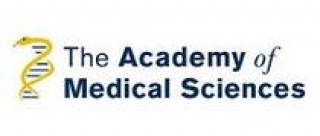
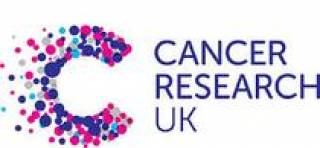


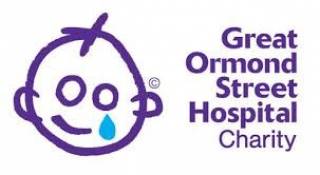
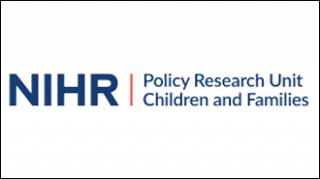
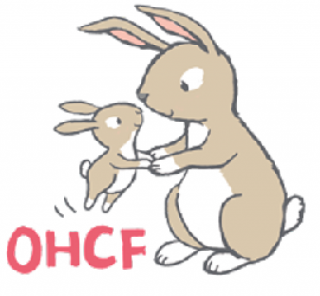

- Publications
 Close
Close


